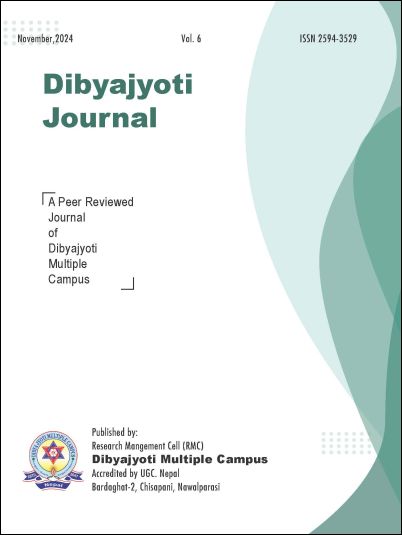Unveiling Femininity: Gender, Fame, and Success in Taylor Jenkins Reid’s The Seven Husbands of Evelyn Hugo
DOI:
https://doi.org/10.3126/dj.v6i1.72053Keywords:
Fame, femininity, cost of success, gender identity, patriarchal, societyAbstract
The main objective of this research article is to explore the intersections of fame, femininity, and identity in Taylor Jenkins Reid's The Seven Husbands of Evelyn Hugo, examining how gendered power dynamics shape the life and choices of Evelyn Hugo, a fictional Hollywood icon. The narrative explores the cost of success for women in a patriarchal society as Evelyn navigates societal pressures and industry expectations through seven carefully chosen marriages and the maintenance of a glamorous, heterosexual public image. While Evelyn uses her relationships as strategic tools to rise in a male-dominated film industry, her true identity and love for actress Celia St. James reveal the limitations imposed by cultural and gendered expectations. Drawing on feminist theory, particularly the work of scholars like Sandra Gilbert, Susan Gubar, and Betty Friedan (1963). This research examines Evelyn's complex struggle for power, examining how fame acts as both an avenue for empowerment and a restrictive force. The study further explores the novel's depiction of femininity, love, and bisexuality, considering how Evelyn's life reflects broader themes of identity and the struggle for authenticity within oppressive structures. This paper ultimately questions the cost of success for women in environments where public personas must often overshadow personal truth, offering insights into the challenges of achieving selfhood in spaces prioritizing image over individuality.




